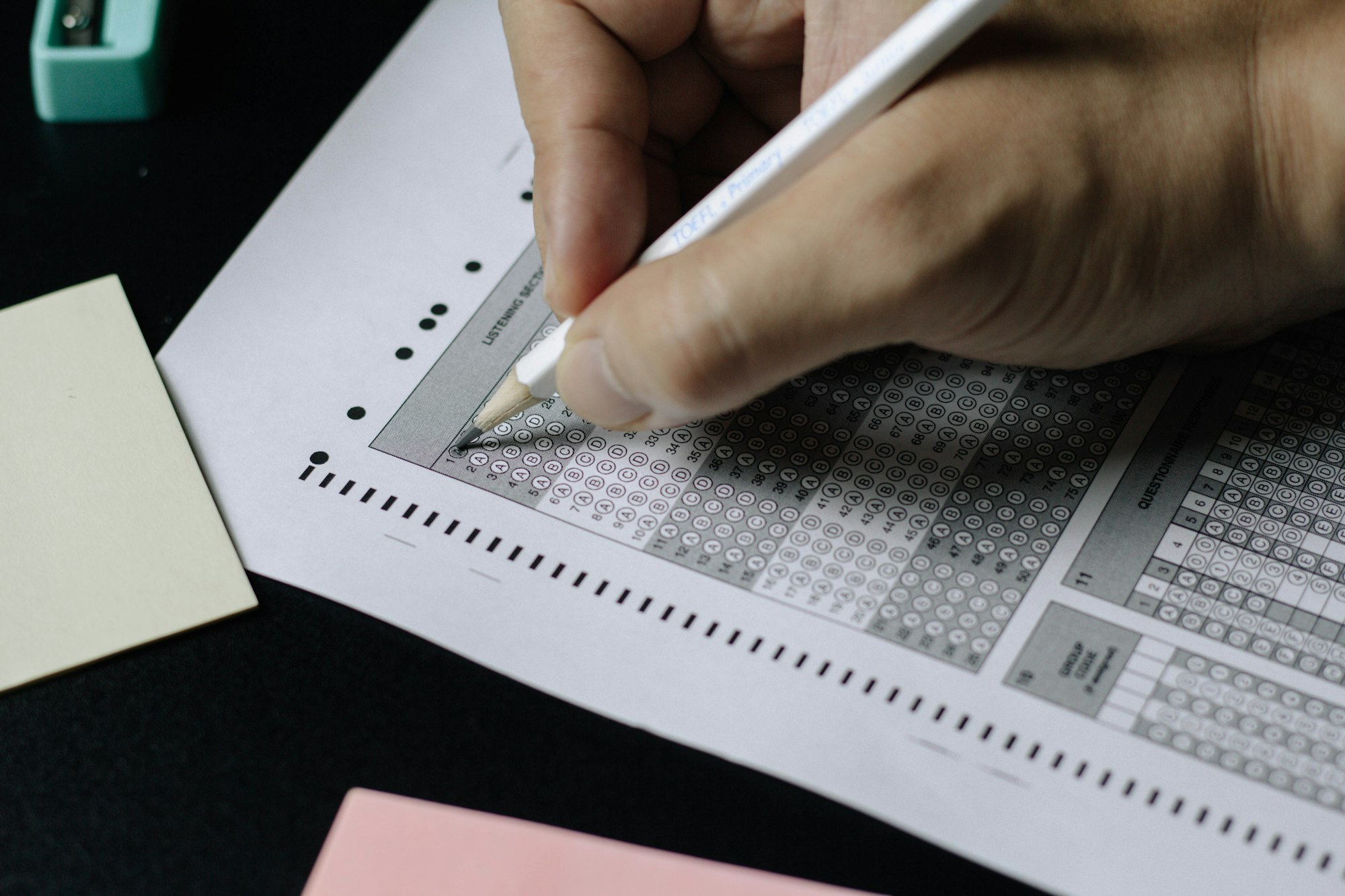That image of the empty desks gave me a chill. I wish you didn't have to read this post, because that means you likely have an upcoming standardized test and need all the help you can get. I got you.
As an Asian immigrant kid who took the SAT/ACT several times to achieve the nearly impossible Asian parent dream of a perfect score (I didn't........BUT tutoring and practice boosted my score a LOT), a prior SAT/ACT tutor (additionally tutored for all ages and subjects), pre-medical student (I truly believe I may have blacked out one of the times I took the MCAT so I took it 3-4 times), medical student (2 years total), and now Certified Child Life Specialist, I can assure you I know my way around an exam. Full disclosure and what I believe makes me so well equipped to help you, is that I have tried and failed so many times.
And before we get any further, my #1 advice is to figure out what's best for you. But because I'm like the Edison of trying and failing to master standardized tests, I am going to give you a breakdown of my top advice in this post.
1) Practice Questions/Exams
The first time I took the MCAT, I knew all the major prep companies emphasized taking 4-6 full length practice exams and analyzing them. But that put me in full panic and stress even thinking about how I would handle a bad practice test score and have time to adjust. So much was riding on my MCAT score due to my less than perfect academic record compared to my competitors. So instead of tackling it head on, I avoided it. I poured myself into trying to remember all of chemistry, physics, biology, etc. and gave myself false confidence my strength in verbal reasoning/CARS was gonna carry my score.
Narrator: it did not carry her.
I actually did decently but also rushed that first MCAT because it was changing formats completely (yes I have been so lucky for this kind of thing to happen to me several times in life). But because I didn't truly practice, I wasn't fully pleased with my score and ended up having to learn the new MCAT too. All this to say, you have got to give yourself the best chance to perform. And that means sticking to a serious study schedule to ensure you stay on track. And that includes taking and analyzing full length practice exams for an exam like the MCAT, or buying a question bank, or doing practice questions regularly.
Most reputable sources are directly from the testing agency. I know that these companies have a huge monopoly and you're already paying so much to sit for the exam. However, those questions available for purchase are usually retired questions from real previous exams and are going to give you the closest insight into what the questions are really going to be like.
2) Why'd You Get it Wrong... and Right
Now that I've emphasized the critical importance of practice questions in some shape or form, it's not helpful if you just keep practicing and don't learn from your mistakes and from the ones you got correct. Why? Because what if you got it right for the wrong reasons, or you guessed? Analyzing your performance goes beyond scoring yourself. You need to understand the question structure, choices, and content to be able to see for yourself where your strengths and weaknesses are.
In various stages of my journey as a student, I've struggled with different main problems with my performance. To give you an idea this can be things like lacking content knowledge, changing my answer, chose an extreme answer, went out of scope of the question, rushing, narrowing down to 2. This can look different for you and that's where analyzing each question (be aware this will take 2-3 times longer than doing the questions themselves) is going to help you bridge the gaps in your score. It's a big and important investment in yourself and your mastery of the exam.
When I was super anal, I actually tracked my stats during my MCAT preparation to see what were the main reasons I was missing questions. I found that analysis really helpful though because I had purchased tutoring support with access to tailored strategies to address some of these common problems. Which leads me to...
3) Tailoring Content Study and Practice
Now that you know where your weaknesses are, you have to adjust and practice that stuff more. It's painful and it's so easy and tempting to just keep doing questions on [insert topic] because you nail it. But the real jump in your score is going to come from addressing your weak areas.
I will say, don't completely abandon those strong areas. Please maintain and if possible, boost it to be even stronger (but plateauing is a really tough part of this process so don't focus on that if you have a really good score in a section or content area). And if you're having a tough time with your progress and need a confidence boost, you bet I'd recommend doing some questions in those strong areas! The process to exam day is long and make sure you keep your mental fortitude and confidence.
4) Test Taking Strategies
I started writing them here but it got so long (oops..) that you can find it in a separate post here:

5) Routine
Minimizing any stressors at all for exam day is the name of the game. Maybe you or a friend are familiar with the stress some of us feel about a parking situation at a venue or restaurant. You just want to know what it's going to be like when you get there. So prepare yourself to have as few potential threats to your sanity on exam day! If you can, do a practice drive to the testing center and scope out parking/traffic. Have the same meal/snack every time you do a practice exam, take the exam at the same time you would too, wearing the outfit you plan to wear. Read up on testing center rules (i.e. how to go to the bathroom, how many breaks you get, do they supply headphones or earplugs) and serious violations that can occur if you don't follow them (like truly it's so secure and can be intimidating if you didn't expect it). Call the testing center to see if it runs cold or hot inside. You probably get the drift now. Set yourself for success to focus on the questions and exam in any way you can.
Start strong on your plan to tackle your exam and just keep swimming! Good luck!
In future posts, I will talk more about the self-care aspect of preparing for a big exam, the importance of your support network, and my encouragements for how to get through the hardest days. Check out Students and Exams tags for the latest. Or consider signing up for a free newsletter to your inbox so you don't miss content!
Shedding Light on Child Life is an independent publication launched in November 2024 by Anisha S. Reza, MS, CCLS. All posts and resources are curated from this author's professional opinion and expertise. Any questions, comments, or requests can be directed via email to childlifewithanisha@gmail.com.




Member discussion: